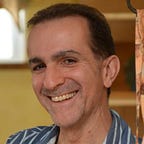North to Alaska, Eggers rushes on
Heroes of the Frontier: A book review
Spoiler alert! A few details at the end of the novel are given away.
In a pivotal scene that occurs late in Dave Eggers’ novel Heroes of the Frontier, our hero Josie and her children Paul and Ana find themselves in Alaska. It’s a Saturday. In the park. They’re listening to a man singing Italian songs.
If this was a bit of literary/musical trickery or some kind of cross promotion with the band Chicago that’s designed to wriggle a brainworm into the head of the reader, the subtlety wasn’t lost on this reviewer. (I still can’t stop humming the tune “Saturday in the Park.”)
I’m a huge fan of Eggers, having read everything he’s written since his blockbuster break-out A Heartbreaking Work of Staggering Genius. I was especially blown away by What is the What, his fictionalized version of the life of Valentino Achak Deng which is celebrating its 10th anniversary this year. I admire Eggers’ non-literary pursuits too for the breadth of his humanity and heights of his creative inspiration, including his latest collaboration in releasing 30 anti-Donald Trump songs in 30 days.
I’ve written about another one of his fine novels, A Hologram for a King, which was recently released as an (almost) equally fine film starring Tom Hanks.
So I didn’t hesitate to travel north to Alaska with his latest characters in the hopes of discovering new literary treasures.
For some reason, this novel did not feel as convincing or authentic as other Eggers’ treasures and that “Saturday in the Park” allusion — if that’s what it was —felt something like disappointment.
To be sure, Eggers hits on some powerful modern themes and issues, including the alienation of the individual in society, contemporary madnesses such as rampant litigiousness and environmental destruction, and that pervasive American motif of the frontier. The novel’s over-arching theme of the need for children to mature, to be allowed to grow and test their limits, is important and timely in an era of ‘helicopter parenting.’
Eggers’ language — the simplicity of his writing which masks the power of his prose — work its magic again in this novel. Just consider his description of “the beauty of the nowhere world” that Josie’s family faces in the Alaskan wilderness, or “the crushing tragedy of their aloneness.” Read this powerful passage following the family’s harrowing escape from a raging fire:
Back inside, Josie peeked into the gym to see if Paul was awake, but he was still splayed on the bed, his mouth open, as if astonished by rest.
But there is something else about this novel that made it feel less convincing then his stories about Deng, Abdulrahman Zeitoun, Alan Clay, Mae Holland or even that of Thomas, the troubled main character of Your Fathers, Where Are They? And the Prophets, Do They Live Forever? Perhaps it was an inability to connect with his characters or fully appreciate Josie’s struggle. I couldn’t appreciate how a successful dentist like Josie ended up married to a “ferret-man” like Carl and the back story involving the tragic life of Jeremy, a young soldier killed in Afghanistan, also didn’t ring true.
I won’t dwell on these things, however, because I agree with another reviewer’s opinion that whether or not a novel is “flawed” is immaterial to a reader. Neil Peart was assessing Hemingway’s lesser works when he wrote that a novel written by a great writer has virtues that far outweighs its flaws, but it could apply to this work.
In Eggers’ case, nowhere are those virtues more apparent than when Josie realizes the strength and beauty in the lives of her children:
Usually she was feeding her children, putting them to bed, all of these prosaic activities that kept her from the beauty of the world. Our children keep us from beauty, she thought, then corrected herself. Our children are beautiful, too, but we must find a way to combine these things, so we’re not missing one for the other. Could it be so hard?
And it certainly comes to the fore when, after her adventures, she realizes this powerful truth:
That only having left could she and her children achieve something like sublimity, that without movement there is no struggle, and without struggle there is no purpose, and without purpose there is nothing at all. She wanted to tell every mother, every father: There is meaning in motion.
And, yes, there is meaning in this book too.
Claudio D’Andrea has been writing and editing for newspapers, magazine and online publications for 30 years. You can read his stuff on LinkedIn and Medium.com and follow him on Twitter.
